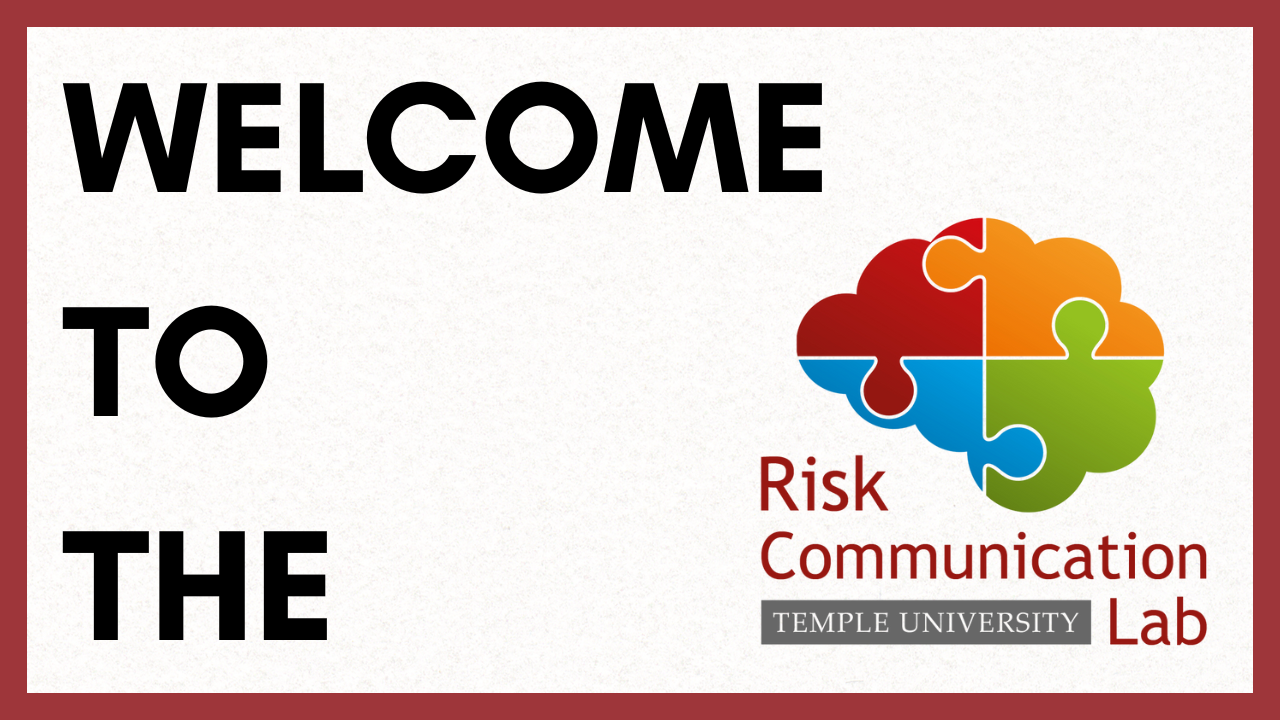Established in 2007 by founding director Dr. Tom Gordon and directed by Dr. Sarah Bass since 2012, the Risk Communication Laboratory is committed to developing meaningful health communication that helps people make informed decisions about their health.

Approach
We believe health communication messaging must meet the needs of all communities. We use innovative commercial marketing techniques and strategies to target messages to the needs of our “consumers” to empower individuals to make informed health decisions.
Key Research Areas & Advancements
We use Psycho-marketing Methods to understand people’s perceptions and decision-making barriers. This mixes psychology, health communication, and marketing strategies to effectively persuade people to think about health decisions differently. Some of the methods we use include:
- Segmentation: We use demographic and psychographic (how people think) data to understand differences in groups and how messaging may need to be tailored, based on those characteristics.
- Perceptual Mapping & Vector Modeling: We are one of the only health communication teams using multi-dimensional scaling analysis to create 3D graphic models to show how groups think about a decision and then vector message modeling to pinpoint key messages to enhance message targeting.
- Physiological Measures: We also use physiological measures to evaluate the effects of campaigns and interventions through:
- Eye Tracking & Gaze Pattern Analysis
- EKG & Skin Conductance Measures
- Health Technology Applications: We have developed a number of technology-based interventions, including:
- Mobile health (mHealth) and electronic health (eHealth) interventions.
- SMS text-messaging based interventions
- Use of social media and other internet based messaging strategies, including working with social media influencers to deliver health messaging.
By integrating these methods, we develop highly targeted health messages, materials, and decision aids to improve health communication effectiveness. This is a video with an overview of these methods.
This short video is an overview of our lab:

We believe our methods can be applied to a wide range of health decisions. Our research has been used in (among others):
- HIV prevention
- Overdose prevention
- Genetic testing
- Vaccination decisions
- Cancer prevention
- Clinical trial participation
- HCV treatment decision-making
- Emergency preparedness
We are dedicated to reaching and supporting communities that face the greatest barriers to healthcare access, including:
- Individuals with low literacy
- People with substance use disorder
- Sexual and gender minorities
- Racial and Ethnic minorities
- Other vulnerable populations
Our work has been continuously funded by a variety of organizations, including:
- National Institutes of Health (NIH) – NCI, NIBIB, NIMH, NIDA, NIDDK, NINR
- Federal Agencies: Centers for Disease Control and Prevention, NIDILLR
- State & Local Governments – PA Department of Health, Philadelphia Department of Public Health, PA Commission on Crime and Delinquency
- Nonprofits & Organizations – American Cancer Society, American Diabetes Association, Gift of Life Foundation, American Association for Cancer Research
- Industry Partners – Gilead, Merck, Genentech
Join Us in Advancing Health Communication
We are excited about the future of health communication and invite you to learn more about how our methods are transforming the way we think about public health messaging.